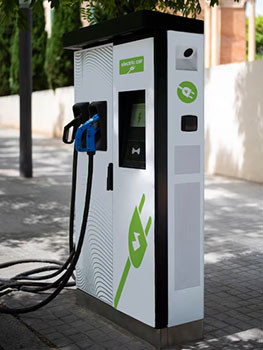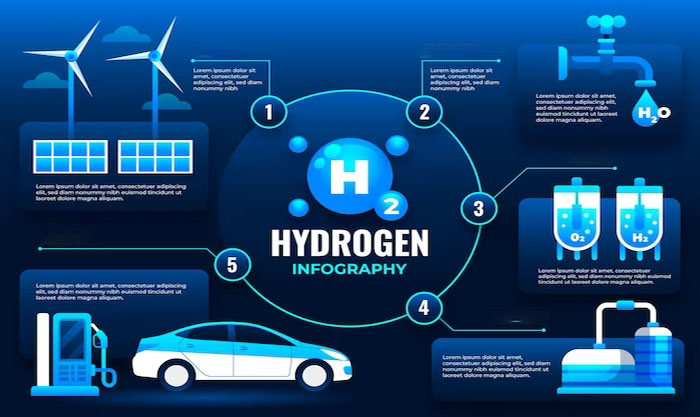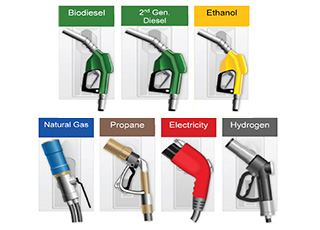For over a century, the internal combustion engine, fueled primarily by petrol or diesel, has been a mainstay in the automotive industry. However, its reliance on non-renewable fossil fuels presents a looming challenge to its sustained dominance.
This dependence on finite resources not only leads to fluctuating fuel prices but also contributes to environmental concerns. Recognising the urgency for cleaner and more sustainable transportation solutions, governments worldwide are accelerating efforts to transition away from traditional petrol and diesel vehicles.
With the UK government pledging to ban the sale of new petrol and diesel cars by 2035, the quest for alternative fuels has gained unprecedented momentum. These fuels of the future share a common objective: reducing reliance on non-renewable resources while minimising environmental impact.
Here are nine promising alternative fuels that could revolutionise the automotive landscape in the coming decades:

Biofuel
Biofuel, derived from organic sources like corn, sugarcane, vegetable oils, and animal fats, stands as a promising renewable alternative to conventional fossil fuels. Second-generation biofuels, crafted from sustainable sources, emerge as a particularly hopeful solution in the medium term.
With their ability to mitigate reliance on non-renewable resources, biofuels hold the potential to revolutionise the energy landscape while addressing environmental concerns. By harnessing the power of natural resources in a sustainable manner, biofuels offer a pathway to reducing carbon emissions and fostering a more resilient and eco-friendly energy ecosystem. As advancements in biofuel technology continue to unfold, the prospect of a cleaner and greener future for transportation becomes increasingly attainable..
Steam
Steam technology, reminiscent of a bygone era, is experiencing a revival in the modern automotive landscape. Through the innovative application of external combustion, contemporary steam engines are poised to reemerge as a viable solution for sustainable transportation. By harnessing the power of steam, these cars seek to minimise emissions and enhance efficiency, presenting a compelling alternative to traditional combustion engines.
With a focus on environmental sustainability and technological advancement, steam-powered vehicles offer a promising glimpse into the future of automotive engineering. As researchers and engineers continue to refine steam technology and address its challenges, the potential for steam cars to contribute to a cleaner and greener transportation ecosystem becomes increasingly tangible.
Kinetic
The utilisation of kinetic energy through brake energy regeneration systems represents a significant advancement in automotive technology. By capturing and repurposing energy that would otherwise be lost during braking, these systems enhance fuel efficiency and contribute to emission reduction efforts. While currently prevalent in electric and hybrid vehicles, the widespread adoption of this technology is anticipated in the automotive industry’s future.
As sustainability becomes increasingly paramount, manufacturers are expected to integrate brake energy regeneration systems into a broader range of vehicles, further bolstering their environmental impact. By harnessing the power of kinetic energy, automotive engineers are paving the way for a more efficient and eco-friendly solution, driving towards a future where energy conservation and emission reduction are prioritised.

Electricity
Electricity has emerged as a solution in the automotive industry, fueled by the rise of electric vehicles (EVs) and significant advancements in battery technology. These developments have propelled EV adoption, capturing widespread attention and redefining the future of transportation.
Despite challenges such as range limitations and the need for robust charging infrastructure, electric cars represent a clean and increasingly viable alternative to traditional combustion engines. As technology continues to evolve, the potential of electric vehicles to revolutionise the automotive landscape grows ever more promising. With ongoing innovations and investments in infrastructure, the electrification of transportation promises to usher in a new era of sustainability, driving towards a future where emissions are minimised, and energy efficiency is maximised.
Heat
Heat, often dismissed as wasted energy in combustion engines, presents a compelling opportunity for innovation through thermoelectric technology. This cutting-edge technology has the potential to convert waste heat into electricity, offering a sustainable solution to reduce energy waste and minimise environmental impact. By harnessing the heat generated from exhaust pipes, vehicles can improve fuel efficiency and mitigate their carbon footprint.
As automotive manufacturers increasingly prioritise sustainability, the integration of thermoelectric systems into combustion engines is expected to gain momentum. This advancement not only enhances the efficiency of traditional vehicles but also contributes to the transition towards cleaner transportation solutions. With continued research and development, heat recovery technologies hold promise for revolutionising the automotive industry and driving towards a greener, more sustainable future.
Hydrogen
Hydrogen fuel is known to be a clean and renewable alternative to conventional fossil fuels, boasting the capability to power both combustion engines and fuel cells. Despite facing infrastructure challenges, hydrogen cars stand out as zero-emission transportation solutions, offering a promising pathway towards greener mobility.
With ongoing advancements in hydrogen technology and infrastructure development, the potential for widespread adoption of hydrogen-powered vehicles continues to grow. As the automotive industry shifts towards sustainability, hydrogen fuel holds the key to unlocking a future of emissions-free transportation and reducing the environmental impact of conventional vehicles.

Nitrogen
Liquid nitrogen, when heated to generate high-pressure gas, serves as a promising energy source for driving piston or rotary engines in vehicles. While nitrogen-powered vehicles may be less efficient than those fueled by fossil fuels, they offer a sustainable alternative with the added benefit of zero tailpipe emissions. Despite their lower efficiency, the environmental advantages of nitrogen-powered vehicles make them an attractive option for reducing carbon footprints and promoting cleaner air quality in urban areas.
Continued research and development in nitrogen propulsion technology hold the potential to further enhance the efficiency and viability of these eco-friendly transportation solutions.
Air
Compressed air technology presents an intriguing alternative to conventional combustion engines in the automotive realm. Although less energy-dense than traditional fuels, air-powered cars boast zero tailpipe emissions, aligning with environmentally conscious transportation goals.
Despite their lower energy density, air-powered vehicles offer a promising solution for reducing carbon footprints and mitigating air pollution in urban environments. With ongoing advancements in technology and sustainability initiatives, the potential for wider adoption of compressed air technology in the automotive industry continues to gain traction, paving the way for a cleaner and greener future of transportation.
LPG
Liquefied petroleum gas (LPG) stands out as a versatile and environmentally friendly fuel option for vehicles. Although less prevalent than traditional petrol and diesel, LPG offers notable environmental benefits and is gaining recognition as a viable alternative fuel.
With its low-carbon footprint and versatility, LPG presents an attractive option for reducing emissions and promoting sustainability in the automotive sector. As awareness of the environmental impact of conventional fuels grows, the adoption of LPG as a cleaner and more sustainable fuel source is expected to increase, driving towards a greener future for transportation.
As the automotive industry embraces innovation and sustainability, the transition to alternative fuels holds the promise of a greener and more sustainable future for transportation. By exploring diverse fuel options and investing in technological advancements, we can pave the way for a cleaner and more resilient future for the automotive industry.



Recent Comments